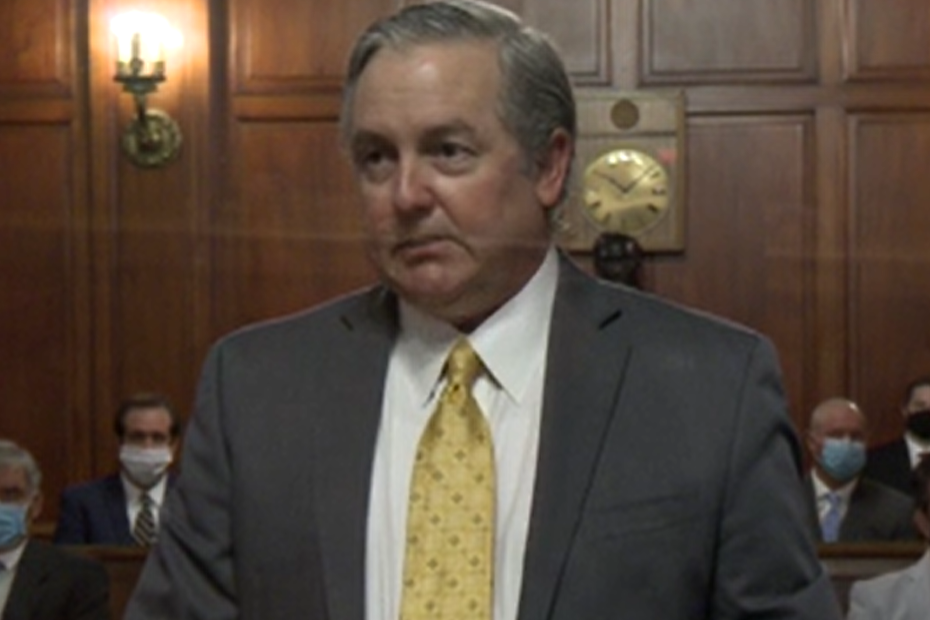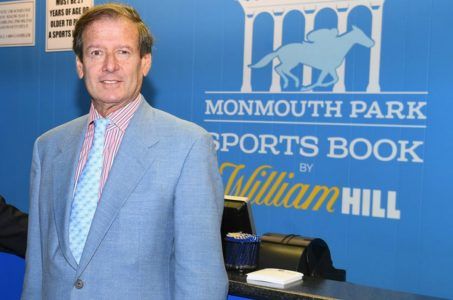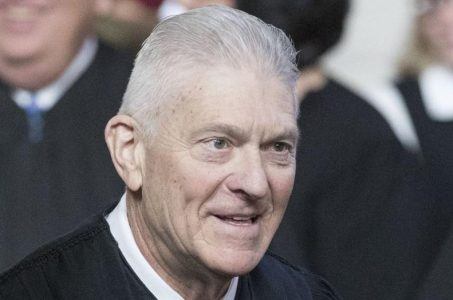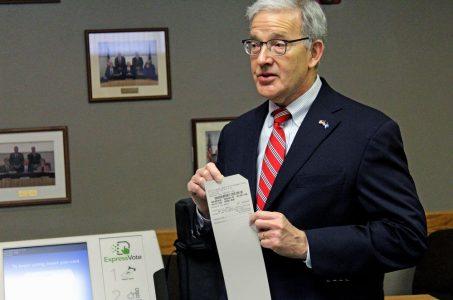HHR Opponents Want Parlors Shut Down After Kentucky Supreme Court Declines Rehearing
Posted on: January 21, 2021, 11:19h.
Last updated on: January 22, 2021, 09:17h.
The Kentucky Supreme Court on Thursday announced it would not revisit an opinion it gave last fall that select historical horse racing (HHR) machines did not meet the definition of pari-mutuel betting. That decision leaves one of the state’s signature industries at a crossroads as it waits for lawmakers to potentially rectify the issue.

The court, in a one-sentence ruling, denied a request by the Kentucky Horse Racing Commission and the state’s racetracks for a rehearing. For now, that means the case goes back to the Franklin Circuit Court, which must now use the court’s Sept. 24 opinion to create an order.
The Family Foundation of Kentucky, which has challenged the legality of the machines for a decade, said in a statement there’s only one option for them now.
The tracks have continued to operate after the September ruling knowing that their chances of getting the Court to change its mind was a shot in the dark,” said Stan Cave, the attorney representing the organization. “Now that the Court has fully finalized its decision – unanimously – the tracks have to shut down their illegal gaming parlors.”
In a statement, the Kentucky Public Protection Cabinet, which oversees the KHRC, said the commission “will act in accordance with the terms of the judgment entered by the Franklin Circuit Court” when it issues a ruling.
KHRC said it will not comment further because of the ongoing litigation.
Court: HHR Machines Not Pari-Mutuel
HHR machines look like slot machines, and from the outside, operate similarly. However, the machines use the outcomes of previously run horse races to determine if a bettor wins.
The state justices said bettors playing the machines wager on a different event or series of events than others. Because of that, and because tracks provide money in advance to cover HHR jackpots, they do not meet the definition of pari-mutuel wagering.
The court also said the KHRC did not have the authority to approve new forms of gaming on its own.
Technically, the Supreme Court’s ruling focused on just one gaming system currently in use at three of the six gaming parlors in the state. However, the other systems have been approved by the KHRC in a similar format.
More than $1.8 billion has been bet at the HHR gaming venues through the first six months of the 2021 fiscal year. That’s up nearly 30 percent from the same period last year. The state’s tracks have received more than $129 million in revenue this fiscal year from the more than 3,500 machines in operation.
Proceeds help the tracks supplement purses for live racing, which racing officials have claimed has helped improve Kentucky’s stature as a year-round racing circuit in the country.
Since HHR began in September 2011, more than $9.8 billion has been wagered. The state has received $59.3 million for the general fund and $147.6 million in excise taxes.
No Changes Yet at HHR Parlors
As for the tracks, which kept their parlors open while they made the motion for a rehearing, they did not immediately close their venues after the announcement.
“As always, we will work with the Commonwealth of Kentucky and the Kentucky Horse Racing Commission on this matter,” said Henderson-based Ellis Park Racing and Gaming in a statement to Casino.org Thursday evening.
Churchill Downs, which operates three HHR parlors in the state, issued a similar statement as well.
“We are evaluating all of our options for moving forward and will be making those decisions in the coming days,” Keeneland Vice President and COO Vince Gabbert told Casino.org Thursday afternoon. The Lexington thoroughbred track operates its HHR facility in conjunction with the Red Mile harness track in the city.
Since the Supreme Court’s September opinion, industry proponents have said HHR is vital not only for live racing in the state, but also for the multitudes of Kentucky businesses that rely on the equine industry as well. Elected officials have said the General Assembly will need to address the issue in this year’s session.
HHR supporters include Democratic Gov. Andy Beshear and some top Republican lawmakers, including Senate Majority Floor Leader Damon Thayer of Georgetown.
The legislature is currently in recess and plans to reconvene on Feb. 2. From then, they will have 22 legislative days left in the session, which must end by March 30.
Any fix the legislature passes will almost certainly face another legal challenge from the Family Foundation, which has argued that any gaming expansion needs to happen as an amendment to the state’s Constitution. That would require a majority of voters approving the measure as a referendum on a general election ballot, which would occur next in November 2022.
Related News Articles
Nebraska Supreme Court to Weigh Arguments on Gambling Expansion Vote
Nebraska Gaming Vote Pushed Forward by State Supreme Court
Most Popular
Mirage Las Vegas Demolition to Start Next Week, Atrium a Goner
Where All the Mirage Relics Will Go
Most Commented
-
Bally’s Facing Five Months of Daily Demolition for Chicago Casino
— June 18, 2024 — 12 Comments
















No comments yet